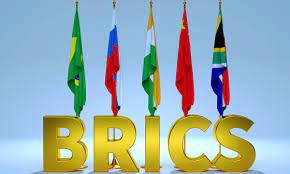
Argentina To Benefit from Joining BRICS
By Rhod Mackenzie
The Argentinian president- elect Javier Milei's team, responsible for international relations, is examining whether the country should join BRICS. Analysts consulted by the team claim that this represents an opportunity for Argentina rather than a risk.
While a final decision has not yet been made, the outcome will have a substantial impact on the country's economic future. The fact that the right-wing, libertarian president-elect is considering the benefits of joining is possibly a sign of a change in his staunch campaign stance. This stance included several contentious claims, including one that the South American country would not become one of the new members of the BRICS group, the five largest emerging markets in the world.
It's no surprise that having won the election, Milei seems willing to take a more practical approach. Since he's no longer in the opposition, he's tasked with the seemingly impossible task of leading Argentina out of an economic crisis characterized by triple-digit inflation, depleted foreign reserves, and a poverty rate exceeding 40%. Against this backdrop, it is crucial for Argentina to establish strong relations with the major developing markets of BRICS. To do otherwise would be counterproductive and tantamount to self-harm in regards to distancing Argentina from other emerging economic markets.
As outgoing president Alberto Fernandez said, joining BRICS would help Argentina "open up possibilities of joining new markets, of consolidating existing markets, of increasing inward investment, of creating jobs and raising exports", all of which Argentina desperately needs.
Membership of the expanded BRICS would certainly bring the nation in line with the economic movements of the current BRICS member states, which collectively make up 42% of the world's population and more than one fourth of the global GDP. Once six more countries join, the new BRICS will represent 46% of the world's population and approximately 37% of the global GDP when measured by the purchasing power parity.
The BRICS coalition has emerged as a significant forum for emerging markets and developing nations to bolster unity and cooperation. The New Development Bank created by the group in 2014, along with the trillions of dollars in reserves held by BRICS nations, could furnish sufficient liquidity for Argentina to restructure its piling debts.
Without doubt, Argentina could reap all possible benefits from becoming part of BRICS and would entertain no downsides. Failure to do so might have severe ramifications for the country.
